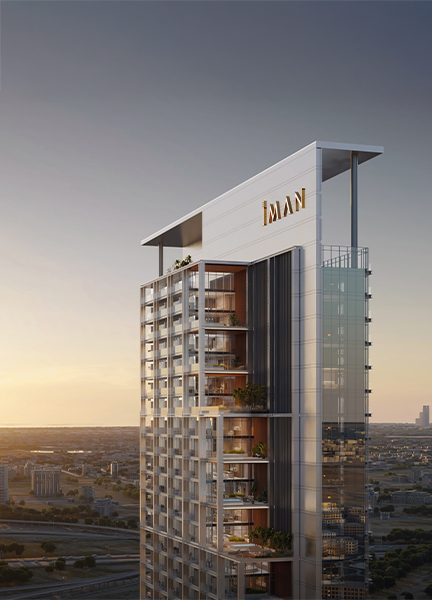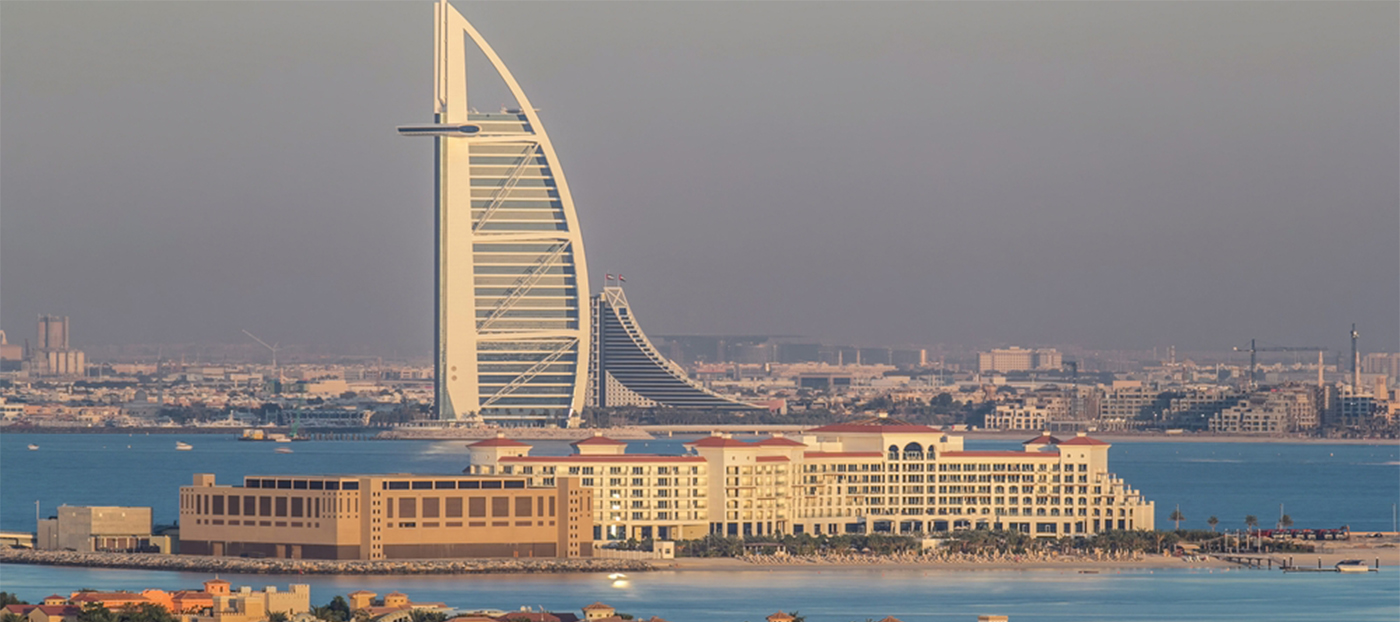


The United Arab Emirates is no longer a mere regional financial hub; it has cemented its position as the ultimate magnet for global wealth. A remarkable migration of billionaires toward Dubai and Abu Dhabi is reshaping the world’s luxury landscape, fueled by a unique blend of financial incentives and unparalleled lifestyle offerings. Let’s just say when the world’s elite decide to move, they don’t pack a suitcase; they ship an entire portfolio.
This change has created a category of real estate developers in Dubai defined by exclusivity, architectural excellence, and scarcity: the “ultra-luxury” segment. For high-net-worth individuals (HNWIs) and institutions, the UAE’s ultra-luxury property market offers a vital opportunity to diversify their portfolios and build a legacy. Understanding this market is the first step to investing like a billionaire.
A billionaire’s investment process is highly strategic. Their decisions stem from three guiding principles: privacy, prestige, and preservation of wealth. In real estate, these principles translate into a search for architectural uniqueness, secure surroundings, and long-term value retention.
Around the world, a shift is taking place: luxury property investment in the UAE is now anchored in lifestyle and security rather than extravagance alone. Today’s high-net-worth individuals (HNWIs) seek homes that assure both comfort and continuity. The UAE’s economy, with its dollar-pegged currency and investor protections, offers exactly that stability.
The UAE’s luxury property segment has expanded rapidly in recent years, redefining what exclusivity means in the Middle East. Dubai remains the centerpiece of this transformation, hosting some of the most sought-after addresses on earth—Palm Jumeirah, Downtown Dubai, Emirates Hills, and Dubai Hills Estate.
Upcoming projects in areas like Motor City and One Park City are joining the fray. Meanwhile, Abu Dhabi’s Saadiyat Island continues to attract discerning buyers with its art-led cultural district and tranquil beachfront homes.
Record-breaking sales tell their own story. In 2023, a penthouse on (Marsa Al Arab) reportedly sold for over AED 420 million, and an even higher one at AED 600 million was a villa on Palm Jumeirah, setting new benchmarks for opulent living. Branded residences in Dubai, such as Armani, Bugatti, and Baccarat, have entered the market, marrying architecture with global heritage brands.
Dubai and Abu Dhabi have become synonymous with financial stability and opportunity. The UAE’s zero income tax policy, robust currency, and progressive business regulations create an environment tailored for wealth preservation.
The Golden Visa initiative, allowing high-net-worth investors in the UAE long-term residency, is a major attraction for those seeking security and flexibility. This program has redefined the UAE property market’s 2025 investment by linking lifestyle privileges with legal certainty.
The UAE ranks among the world’s safest nations, with world-class healthcare, international schools, and unrivaled air connectivity. Private jet terminals, luxury marinas, Michelin-starred restaurants, and global art fairs all contribute to the ecosystem that billionaires find reassuringly familiar.
Branded residences are a dominant force in the UAE luxury property market. These developments combine design excellence with the prestige of global brands like The Ritz-Carlton. They deliver a seamless blend of hospitality and home ownership, promising concierge services, curated interiors, and strong resale potential, like luxury apartments in Palm Jumeirah.
The demand for luxury villas in Emirates Hills, Jumeirah Islands, and Dubai Hills continues to rise. These homes embody privacy and architectural individuality. With larger plots and limited supply, villas often appreciate faster than high-rise properties, offering both lifestyle and capital growth advantages.
International investors consistently favor waterfront residences in Dubai Marina, Palm Jumeirah, and Bluewaters Island—real estate for ultra-rich investors. The combination of panoramic views, exclusive marinas, and limited land availability has made this segment a global favorite for ultra-rich investors.
Off-plan projects are increasingly popular among high-net-worth investors in the UAE. They offer flexible payment terms and early access to emerging prime real estate in Abu Dhabi. For billionaires, such tax-free investments in Dubai serve as a diversification tool—spreading capital across upcoming districts without compromising luxury standards.
The coming decade promises a more intelligent, data-driven real estate landscape. AI-based valuation systems are expected to enhance pricing accuracy and predictive insights for billionaire investments in the UAE. Sustainability will also define the next phase of Dubai luxury property trends, with energy-efficient materials and green certifications becoming standard in high-end developments.
Branded living is likely to expand further, blending technology, wellness, and personalized service into a single real estate experience. As global wealth migrates toward tax-efficient, stable economies, the UAE will continue to attract billionaires seeking permanence and prestige.
Developers in Dubai, like IMAN, believe that investing like a billionaire in the UAE is to invest in vision, lifestyle, and legacy. The country’s ultra-luxury real estate market has become a benchmark for excellence, blending architectural mastery with economic foresight.
1. What makes a property “ultra-luxury” in the UAE?
Ultra-luxury properties in the UAE are defined by architectural excellence, custom-designed interiors, panoramic views, and exclusive amenities like private pools and cinemas, representing the top 0.5% of the market.
2. Which areas in Dubai attract billionaire investors?
Prime areas like Palm Jumeirah, Emirates Hills, Downtown Dubai, and Sheikh Zayed Road draw billionaire investors for their prestige, luxury villas, and high-end lifestyles.
3. Why is the UAE considered a safe investment destination?
The UAE offers political and economic stability, advanced infrastructure, low crime rates, and investor-friendly policies with no systemic corruption.
4. Are there tax benefits for property investors in the UAE?
Yes, investors enjoy no personal income tax, no capital gains tax on property sales for individuals, and no annual property taxes, maximizing returns.
5. What is the future outlook of the UAE luxury property market?
The market is thriving, with record-breaking transaction values already exceeding Dh525.87 billion in the first ten months of 2025 and a projected 9.47% CAGR through 2030, driven by surging demand for luxury residences.
6. Why do so many wealthy people want to buy property in Dubai?
Affluent buyers are drawn to Dubai’s tax-free environment, Golden Visa program, political stability, luxury lifestyle, and strong investment returns.
7. What is the 1% property scheme in Dubai?
It’s a developer-offered payment plan where buyers pay 1% of the property price monthly during construction, often after a 20% down payment, to ease affordability.
8. What will happen after 99 years of leasehold in Dubai?
The property reverts to the original freeholder unless the lease is renewed or extended by agreement.
9. What is the 6-month rule in Dubai?
It requires residency visa holders to enter the UAE at least once every 180 days to keep the visa valid, with exemptions for certain Golden Visa holders.
10.Can a leasehold property be converted to freehold in Dubai?
Yes, in eligible areas like Sheikh Zayed Road and Al Jaddaf, by paying a 30% conversion fee on the land value to the Dubai Land Department.
11. What are the disadvantages of buying a leasehold property?
Disadvantages include limited control over modifications, renewal uncertainty at lease end, and potential value depreciation as the term shortens.
12. Which nationality buys the most property in Dubai?
The city’s tax-free system and global appeal attract investors like Indians, British, Saudis, Russians, etc
13. How much deposit do I need for a $700000 house?
For a $700,000 property (about AED 2.57M), expatriates typically need a 20% deposit ($140,000), while UAE nationals require 15%.